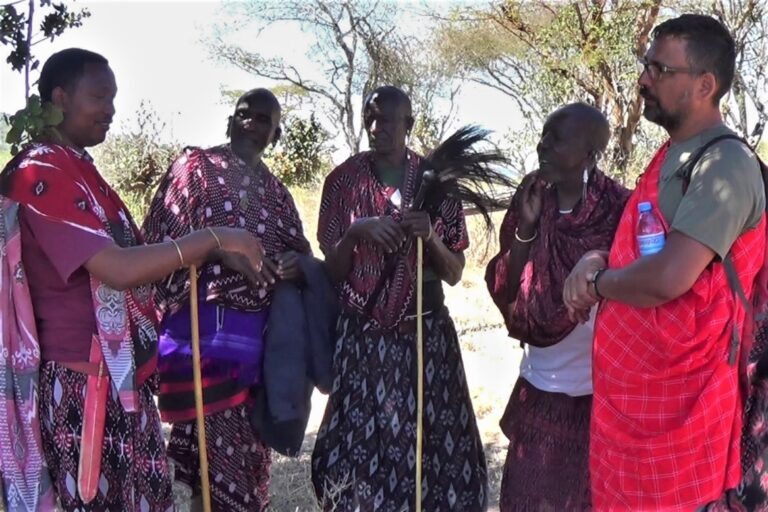28 Sep A Message of Hope from One Indigenous Community to Another
In early August 2022, a group of indigenous community members of the Carcross / Tagish First Nation from Yukon, Canada visited the Maasai of Ngorongoro and Elerai in Tanzania. The visit came about as part of a project led by University of Victoria in Canada in collaboration with Kesho Trust. Indigenous partner organizations in the project are: Carcross / Tagish First Nation (Canada), Ereto Maasai Youth (Tanzania) and Enguserosambu Forest Trust (Tanzania). The project followed on from a preliminary stage in 2019, where a group of Maasai leaders from Tanzania visited First Nations in Canada including the Carcross / Tagish First Nation. The project is funded by the Social Sciences and Humanities Research Council of Canada.
“The success we have achieved as indigenous people in Canada on land rights and social and cultural issues did not come overnight. It was a long time process that involved lobbying and advocacy by a united community of indigenous peoples, with a cost of life and resources. As the Maasai of Tanzania you should not give up but rather stand up for your rights and way of life because the future remains bright”
– Sean McDougall, Heritage Manager, Carcross/Tagish First Nation
The project team tour began with a visit to the Maasai people in Engaresero village at Lake Natron in northern Tanzania for three days. Here, they were introduced to the Maasai culture through visiting the homesteads (bomas) of the local people and attending various family and community events, such as milking the cows and wedding ceremonies, as well as learning about the use of local and traditional medicines at a meat retreat camp, orpul and visiting the Maasai spiritual leader, Oloiboni.
From Lake Natron their travel route took them through Serengeti National Park and Ngorongoro Conservation Area where the visitors experienced the endless plains of the Serengeti, plentiful and diverse wildlife and the magnificent Ngorongoro caldera. They were also constantly reminded that all of these landscapes were also once Maasai homeland, taken away in the name of formal conservation and now reaping huge benefits for government and the private sector while the Maasai struggle.
A final destination of the tour was the Maasai community of Elerai, located at the southern edge of the Maasai Steppe in central Tanzania. The three day visit focused on sharing the culture and traditions of their own communities. Small groups provided in-depth opportunities to focus on specific areas of knowledge and tradition with the Elerai community members most closely connected to these traditions – topics including land and water use and governance, culture, youth, and women issues.

One of the lessons learned from both indigenous communities is that their cultures are strikingly similar in the concepts, beliefs, and practices that underpin their traditions. Similarly, both groups share much experience in the struggles they went through in safeguarding their way of life.
Among the differences found is that the Maasai are still holding their culture strongly (i.e., language, clothing, community events, and ceremonies), while the First Nations in Canada are working hard to bring their culture back having lost their native languages and traditions under the pressure of colonial powers. Further, there was a lesson that while the Canadian government has started to recognize the rights of the indigenous people of Canada and begun to compensate for the loss of those rights in the past, the Tanzania government remains blind to the Maasai way of life, treating them as people living an outdated life that must change. Hence, their rights to land and livelihoods are being actively undermined.
Generally, the Carcross / Tagish First Nation visit with the Maasai of Tanzania brought a message of hope. The road to success being followed by indigenous people in Canada is an example for the Maasai of Tanzania who should not give up but rather stand up for their rights and way of life.


